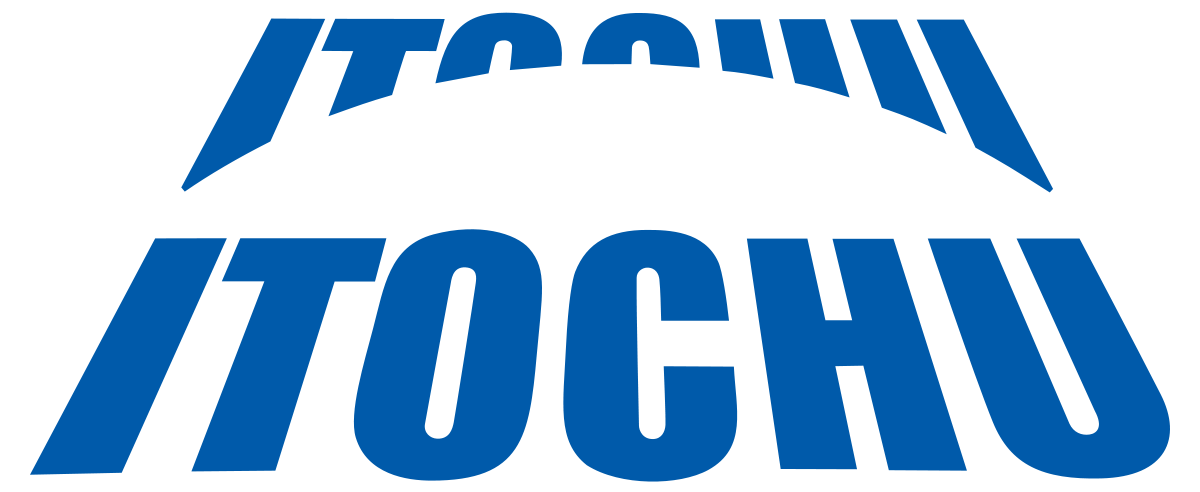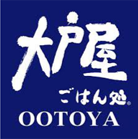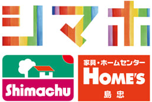Executive Summary
As long-standing, engagement-oriented investors in Japanese equities, we have been encouraged by Japan’s rapidly evolving market for corporate control. Considering recent notable transactions, including a recent tender offer for one of Usonian’s portfolio companies – real estate finance and services firm Kenedix – we would like to highlight our views on Japan’s rapidly evolving market.
Japan’s market for corporate control has been limited
Unlike in the U.S., which has seen about 30-35 unsolicited offers for public companies each year over the last decade, hostile M&A activity is a rarity in Japan. Between 2000-2018, only about a dozen hostile transactions were completed. Further, most of those cases entailed obscure, idiosyncratic issues, rather than market discipline or competition for undervalued and underperforming corporate assets. Tender offers were generally pre-arranged with management, and only done in a manner that would be agreeable to senior management irrespective of shareholder opinion. The conscience of a fiduciary-minded director would be shocked by the candid response of Japanese management to a would-be suitor management of a company subject to a friendly tender offer unashamedly tells a suitor with a higher bid to “go away.”1
The limited success of opportunistic acquirors is not a surprise given idiosyncratic Japanese factors such as the dispersion of shareholdings through cross-holdings (typically in management-friendly hands), a corporate and shareholder culture still dominated by lifetime-employee-controlled corporate boards, and laws which have had an anti-takeover bent in practice. The result has not been particularly surprising either. Asset-rich Japanese companies have traded at cheap valuations that defy conventional market logic. Investors simply do not believe that latent assets will be put to better use and the market is unlikely to discipline management through a take-over. The absence of an active market for corporate control, above all, is what causes Japan to trade at a discount.
Signs of change have appeared
Over the past couple of years, we have seen signs of a burgeoning market for corporate control in Japan. Some of the most notable competitions for control are included in the chart below.
Target |
Acquiror |
Situation |
|
|
|
Rather than buy and develop hotels organically, HIS attempted to acquire a real estate asset portfolio via tender offer for Unizo, a real estate company that was trading at a deep discount to net asset value. After Unizo was “put into play” by HIS, Elliott Management accumulated shares and pressured management to consider a competing bid from Blackstone which set off the bidding war between Blackstone, Fortress and Lone Star. Ultimately, management aligned with Lone Star to complete a controversially structured “Employee Buy Out.” Unizo represents a seminal case. Though the perception of management was negatively affected due to the deal structure, the market worked as intended with the company assets ending up with the party for whom the assets were of greatest value. |
|
|
|
After Toshiba announced a tender offer buyout (“TOB”) for its listed subsidiary, NUFLARE, Hoya launched a competing bid at a higher premium. While Hoya was unsuccessful, the case is notable as two blue-chip companies publicly competed for corporate control of a notable company. In years past, Hoya would have been viewed unfavorably as an interloper. In this case, the public perception of Hoya was viewed as meritorious while Toshiba’s opposition is generally viewed as conflicted and illegitimate. The NUFLARE case highlights a significant shift in Japanese ideology regarding competition for corporate control. |
Beji Sasaki (private investor) White knight
|
Sasaki initiated a hostile TOB for a Fujitsu-related company. After Sasaki’s initial offer, Fujitsu and Sasaki engaged in a series of counterbids, ending with Sasaki’s successful acquisition, despite the Board (including four members from Fujitsu affiliates) recommendation in favor of the Fujitsu bids. The transaction represents an historic example of a successful hostile tender offer. |
|
 |
 |
A dispute between Itochu and Descente management led Itochu to launch a tender offer at a 50% premium to acquire control over Descente. |
 |
 |
The son of Ootoya’s founder disagreed with Ootoya management about the company’s strategy and subsequently sold the family’s stake to a competitor - Colowide. After Colowide gained the founder’s 19% stake, it proposed a new slate of directors. Loyal retail investors rejected Colowide’s slate. Colowide subsequently launched a tender offer at a premium, successfully acquired a controlling share of Ootoya and promptly called an EGM to summarily fire Ootoya management and to treat the controlled company as an operating division. |
 |
 |
COVID-induced pressures led management of the Shimachu to sell to a tender offer from market leader - DCM. Nitori jumped into the process with a higher bid and won the battle for Shimachu. Shimachu was an historic contest for corporate control where a friendly tender offer (DCM) was overturned by an interloper offering a more compelling bid (Nitori). |
All these transactions broke the Japanese taboo of making a tender offer for a company without approval of the target company’s management. As such examples become more commonplace, others will undoubtedly follow in their footsteps.
The market has grown to anticipate competition for companies that have been “put into play” by the announcement of a parent-child consolidation, MBO, or other tender offer, as evidenced by our recent experience with Kenedix. Recently, after Sumitomo Mitsui Lease announced a tender offer at ¥750 for Kenedix, the market quickly reacted and traded as high as ¥778. Clearly, investors anticipated that other suitors are likely to enter and bid a higher premium for Kenedix. We believe this evolving market experience is healthy and encouraging.
Why now? What has been driving the increase in hostile activity?
There are many factors driving growth in Japan’s nascent market for corporate control. With no question, Japan’s Abenomics Era reforms had a large impact on the use acceptance and success of hostile takeover techniques. The Stewardship Code (first published in 2014), required signatory institutional investors to disclose proxy voting making it difficult for conflicted investors to vote proxies against the best interest of their investment management clients in the event of a tender offer at a higher price. In addition, the Corporate Governance Code, which soon followed, in effect outlined a corporate director responsibility to shareholders. The METI-sponsored Report of Professor Kunio Ito on Competitiveness and Incentives for Sustainable Growth (the “Ito Review”), encouraged, among other things, meaningful dialogue between investors and management.
Beyond the often cited “Abenomics” factors, numerous other drivers are contributing to a virtuous cycle reinforcing this trend. They include:
- TSE listing requirements: TSE plans to consolidate boards and create a new “Premium” board of higher prestige, but also stricter listing requirements. Management will prefer either to merge or delist than suffer the indignity of downgrading their listing status. This trend will probably become evident in the micro-cap space over the next couple years.
- METI’s Fair M&A Guidelines: In 2019, METI published Guidelines for Fair M&A that recommended protections for minority shareholders in conflicted transactions (such as our experiences including Roland, Nihon Nohyaku, Japan Aviation). Management who are contemplating an MBO or parent-child consolidation are motivated to do so sooner rather than later as the process is only becoming more restrictive.
- Weakening allegiance from cross-holders: Japan’s unique shareholding structure has shielded management from investors. Allegiant shareholders have historically supported management out of loyalty and promise for business favors. This shareholding structure has served for many years as a mutual protection pact, but the pact is showing signs of weakening as the scale of allegiant holdings decline. Furthermore, loyalty is waning along with cases of allegiant shareholders selling shares to the highest bidder in contesting transactions.
- Massive accumulation of capital by activists and private equity: Private equity funds that have demonstrated a string of highly successfully transactions that have generated extraordinary returns that have caught the attention of the market. Recent success has enabled private equity investors to raise larger funds and has attracted more competitors to enter the market. The rapidly growing mass of capital will drive more competition for corporate assets. (Bain, KKR, and Carlyle are high-profile private equity funds commonly known in the West that have demonstrated success in Japan, but we are seeing many local and regional funds enter the market as well.)
- Judicial shift: The courts have become friendlier to shareholders. (While the Bull-Dog Sauce “abusive shareholder” ruling remains unfortunate legal precedent in Japan, recent court rulings on poison pill-related matters have been interpreted as shareholder-favorable. The court in the Inui Global Logistics case approved an investor’s Extraordinary General Meeting (EGM) request to abolish a poison pill. While the Yorozu court denied a shareholder’s poison pill-related EGM convocation proposal, the court did so on highly technical grounds rather than invoking Bull-Dog Sauce or commenting on the merit of the shareholders’ challenge to Yorozu’s poison pill. Some commentators have interpreted the Yorozu ruling as an implicit weakening of the Bull-Dog Sauce ruling.)
- Declining number of poison pills: Japanese companies have been abandoning poison pills as shareholders increasingly vote against their renewal.
- COVID: COVID has precipitated a wave of domestic merger and acquisition activity in industries under stress. (Colwide/Ootoya is an example.)
- Influential Domestic Asset Owner Objective: Important market participants who own significant outstanding shares of listed Japanese companies (i.e., GPIF and PFA) have stated a desire to see a more active market for control.
- METI Business Restructuring Statement: For historic reasons, many industries remain fragmented to an unhealthy degree. METI has announced a policy to drive consolidation of regional leaders to create global leaders in respective fields. (The transaction involving portfolio company Nissin Kogyo might be an example of such an initiative.) METI’s Business Restructuring White Paper addresses Japan’s need for better business portfolio management, especially regarding the identification and disposal of non-core businesses, which METI sees as a major weakness of conventional Japanese management. METI promoted the concept of “best owner” and calls for management not to hang on to a business if it might go better in someone else’s hands.2
- Shame: A public spotlight has shown on the conflicts that emanate from conflicted allegiant/cross-shareholdings. As such practices begin to be perceived as shameful, they will become less protective and the practice will decline. (An example of this is the Strategic Capital PR campaign calling attention to the conflicts of interest between Keihanshin and its primary allegiant shareholder, a megabank that owns 4% of the company and occupies five seats on the board.)
- Parent-child scrutiny: Regulators and market commentators becoming increasingly scrutinous about practice of parent-child listings. After the government’s 2019 Growth Strategy highlighted parent-child listings as the next focus of corporate governance reforms, there has been an acceleration to resolve such situations. Examples include Toshiba’s TOBs to take private three of its four listed subsidiaries. Delisting of Mitsubishi Tanabe Pharma, Hitachi Hitec, Hitachi Chemical, Sony Financial, and NTT DoCoMo. These subsidiaries were in the top-20 parent-child situations by market cap, so there has clearly been a decisive shift in the scale of activity. Increasingly, tender offers for the remaining shares of a listed child are being met with a counter-bid by another would-be-suitor. (Hoya’s bid to acquire Toshiba’s listed subsidiary, NUFLARE, is a seminal example of a blue-chip company competing for acquisition of a listed subsidiary.) The evolving landscape is inspiring parent- child listings to be resolved quickly before the market becomes more hostile to the arrangement and consolidating becomes more expensive. Parents are moving to simplify portfolios, reduce the grounds for conglomerate discount – in some cases to stave off activist pressure – and to get ahead of the developing body of soft law on group governance, which seeks to impose more stringent requirements on listed subs and might make future transactions mor difficult to execute.
A more active market for corporate control lies ahead
While the number of hostile takeover bids reached a historic high in 2020, we think this is just the beginning of a longer-term and much-needed trend in Japan. We believe that a more active market for corporate control in Japan is important for several reasons. At a company-specific level, the trend stands to inure significant benefit to minority shareholders as competition for corporate control stands to release a massive amount of latent corporate asset value. Outside of the targeted companies, the rise in takeover activity stands to benefit minority shareholders as we see a positive halo effect across the market, i.e., management teams will work harder to generate value for shareholders when the threat of being acquired becomes more credible. Growing market discipline should further catalyze trends to enhance corporate governance. As latent assets and other resources are extracted from lazy balance sheets, investors and acquirors will put the resources to better use, which should bode well for Japan’s general economic growth.
Looking forward, we expect to see takeovers, subsidiary buyouts and disposals, and mergers with increasing frequency. We believe cultural norms will continue to evolve and competition for corporate control will become even more accepted. Cultural norms are changing with the growing prevalence of hostile bids, especially as blue-chip companies like Hoya enter the fray. The media is much more balanced about the topic than in years past. On the regulatory front, we expect to see further reforms and increased regulatory and industry scrutiny over conflicted transactions.
Japanese M&A guidelines have not provided adequate protection for minority shareholders (as we have highlighted with our experience in conflicted transactions with shareholders (Roland) and parent-child transactions (Nihon Nohyaku, Japan Aviation). Regulators and market commentators have grown sensitive to this issue, including promulgation of METI’s Fair M&A Guidelines and media coverage of questionable transactions such as the Nichii Gakkan MBO and Itochu- FamilyMart. Minority shareholder protection and fair transaction values depend on key legal changes. Without such changes, private equity firms and controlling shareholders or parent companies will continue to execute underpriced take-private transactions with low takeover premiums. Premiums will rise as more investors sue for appraisal rights and complain to the media. For the regulators, the next steps proposed include revisions to the Corporate Governance Code: the follow-up working group is now being assembled, though it is yet to be announced, with 2Q 2021 as the provisional date for implementation. The agenda will include “parent-child” policies and disclosures. We hope to see insightful aspects of the METI Business Restructuring White Paper incorporated into the new Code.
Furthermore, the pace of consolidation and go-private transactions will likely accelerate as groups that are contemplating acquisitions anticipate increased competition and scrutiny around the corner. As cultural norms change, Japanese infrastructure will become more robust and supportive of a market for corporate control. For example, until recently, securities companies were unwilling to act as transfer agents for a hostile tender offer in fear of public criticism and loss of clients who worried they might be next. Recently, we have seen blue-chip securities firms support controversial transactions.
We also expect to see competition for corporate control gradually work its way up the market cap spectrum. With the arrival of global private equity giants, the average hostile transaction size has surged. The Suga administration’s “administrative reform” initiatives, designed to overcome bureaucratic silos that affect policymaking related to corporate governance reforms, provide another sign of hope. Today, obvious gaps in policy result in frustrating circular arguments (such as FSA claiming an issue is within the domain of METI, who argues it’s within the domain of the Department of Justice, who argues it’s within the domain of FSA). Administrative reforms could break down silos and ideally shift from non-compulsory comply-or-explain codes and into "hard law."
We anticipate Japan’s market for corporate control to continue to mature and develop, leading to corporate assets being put to better use, more consolidation, de-listings, etc. Importantly, we expect the trend to have a broader positive impact on Japanese economic growth and enhance corporate profitability. All of this should bode well for long-term investors in Japanese equities.
Download article here.


